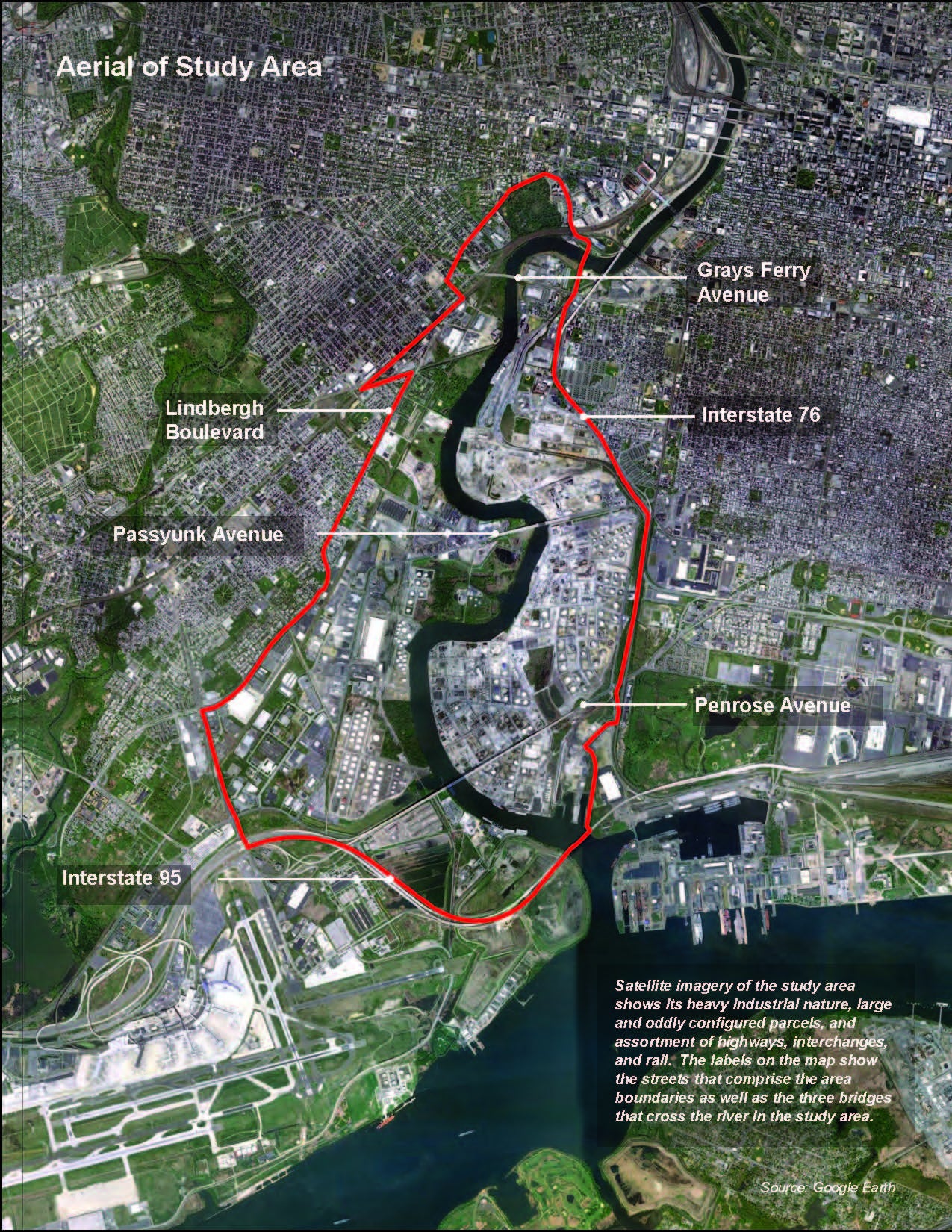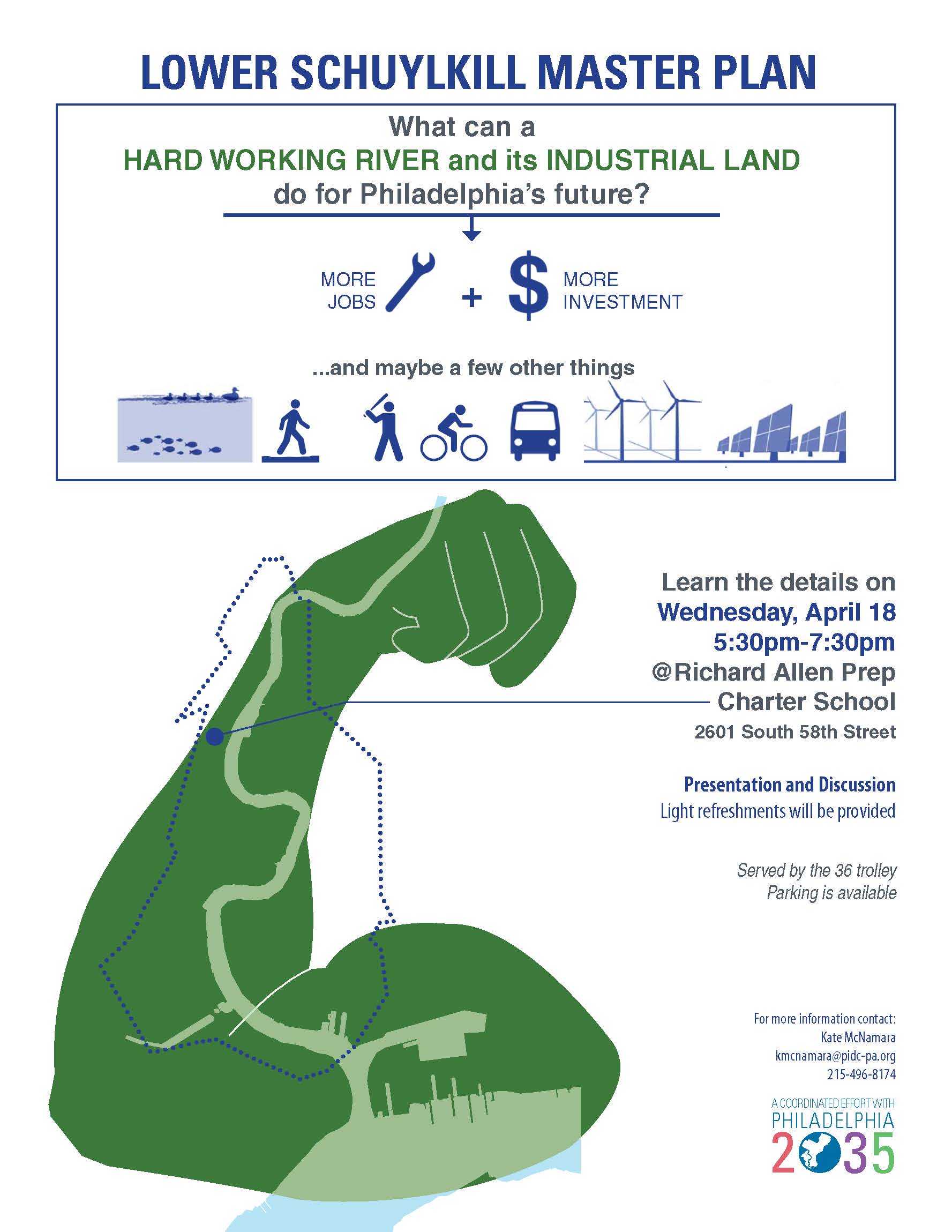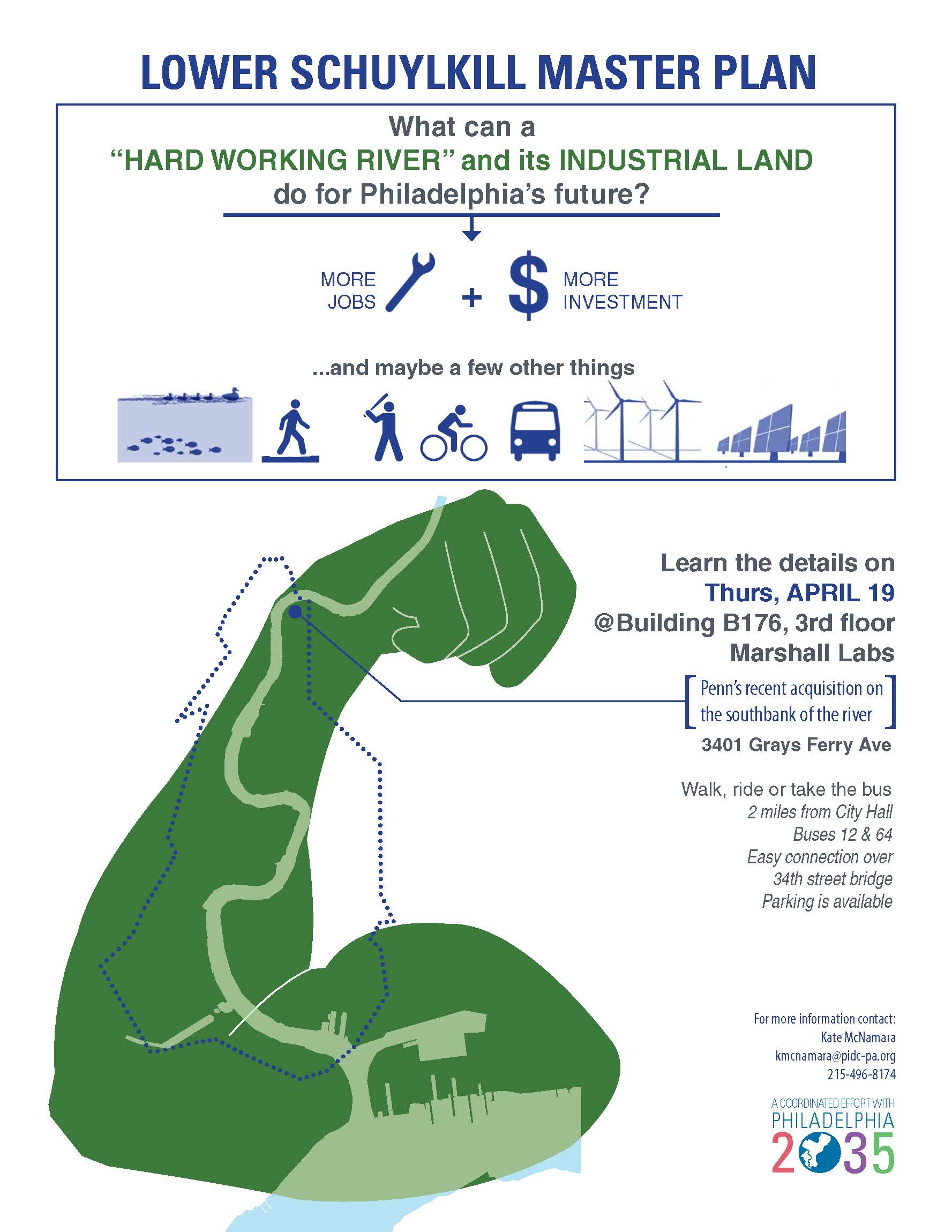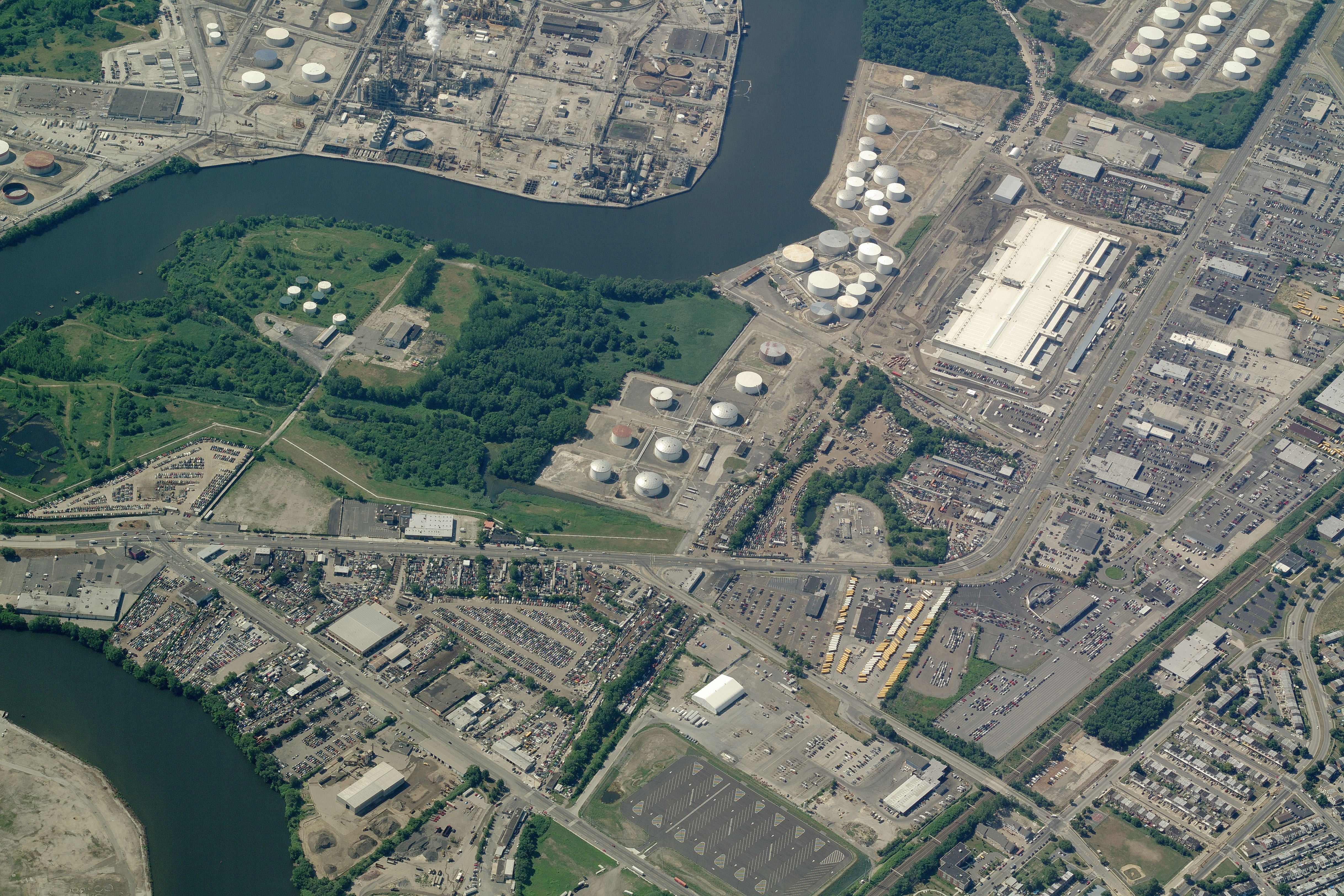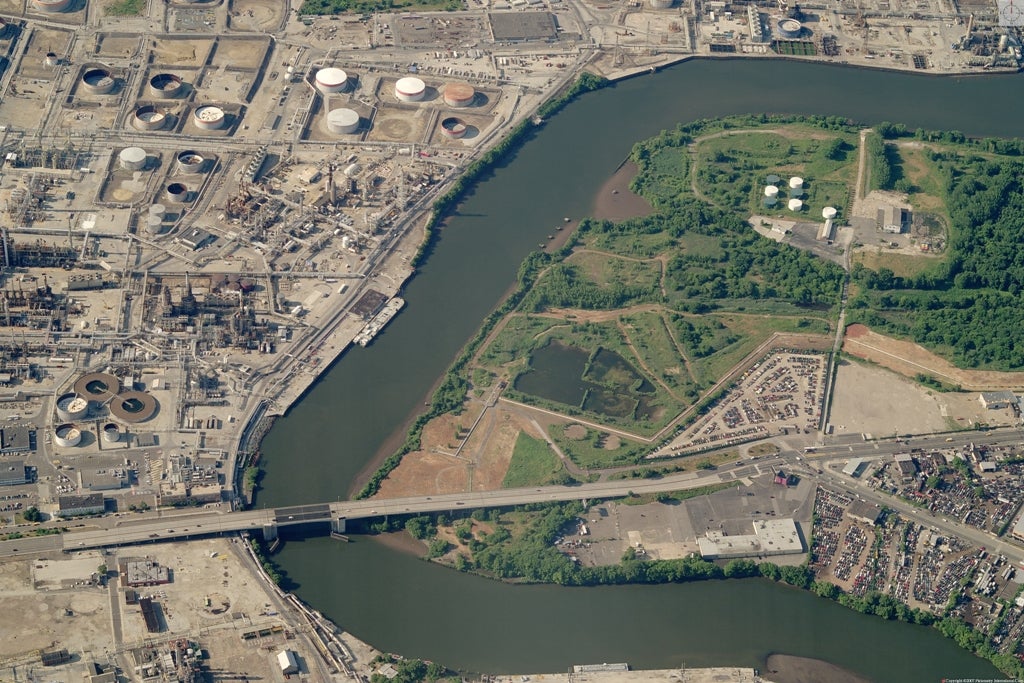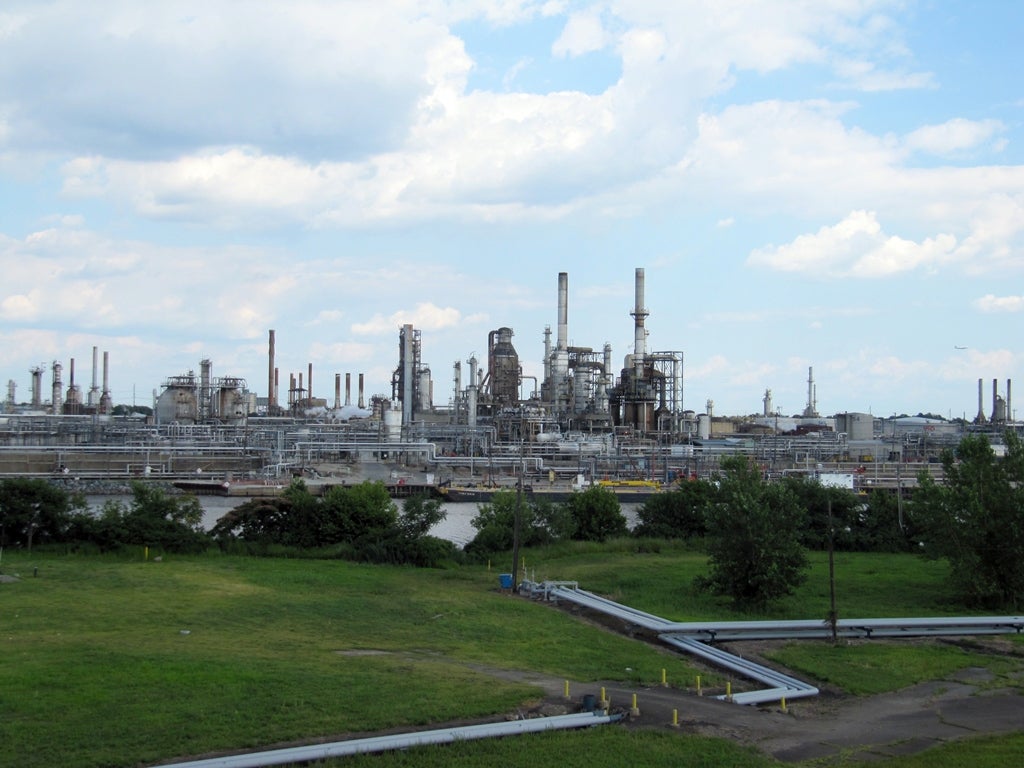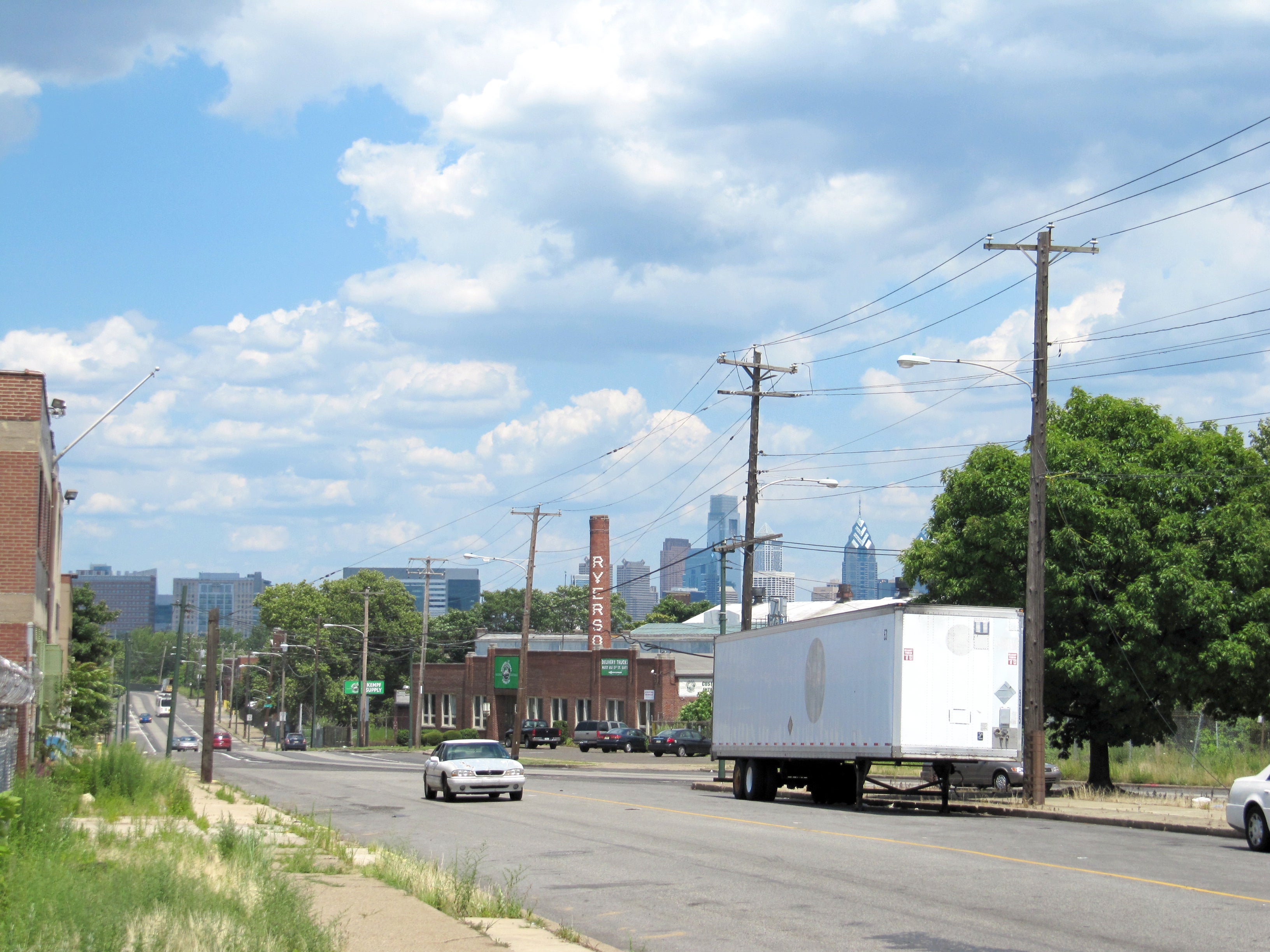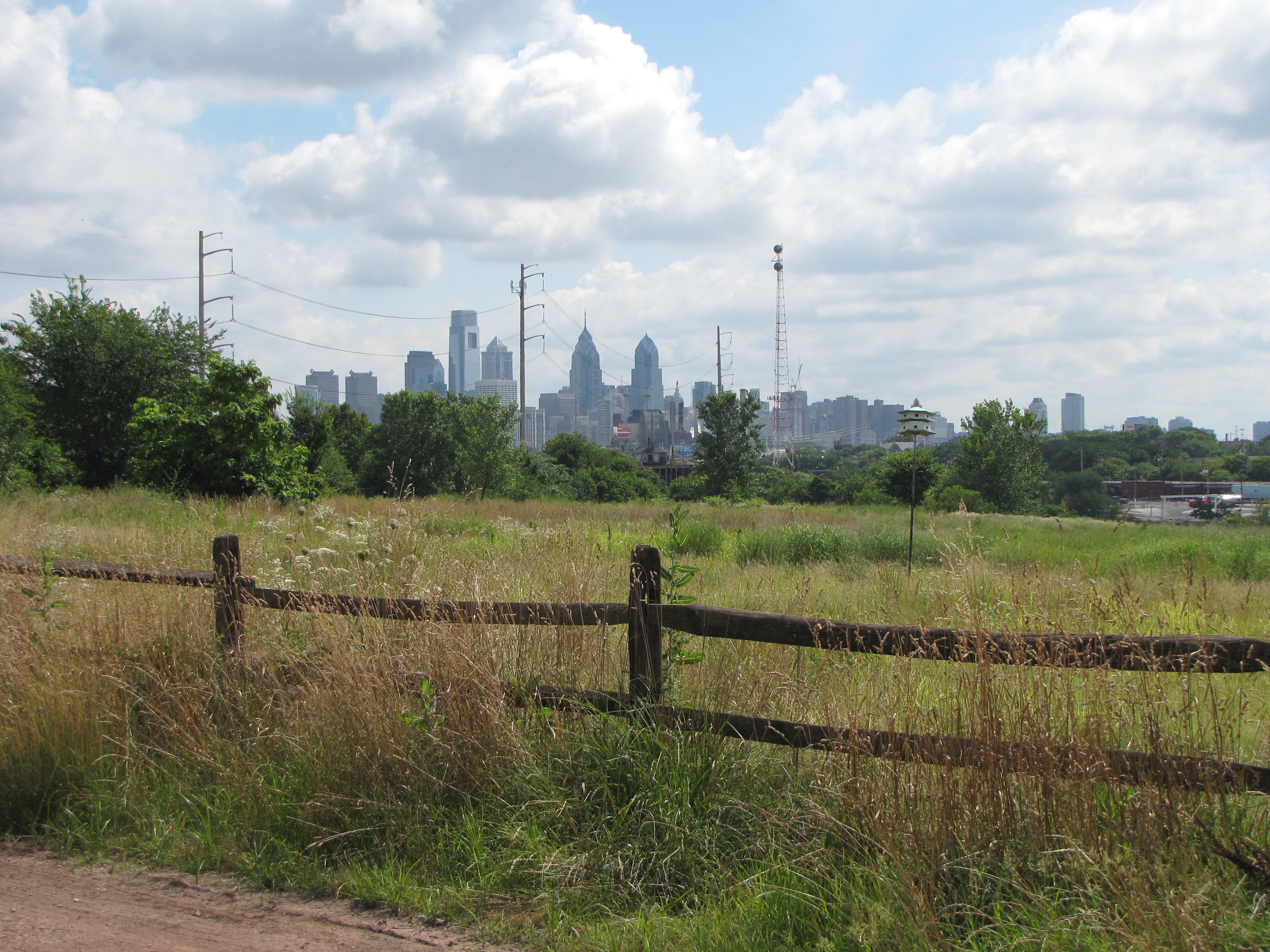Lower Schuylkill Master Plan meetings in April
Take a look at recent press coverage on the Lower Schuylkill Master Plan!
- A recap of the April 2012 public presentation and feedback meetings (PlanPhilly)
- An in-depth tour and photo essay of the 3700 acres of the Lower Schuylkill (Eyes on the Street)
- “Unlocking our Hidden River” (Flying Kite)
- An op-ed on the potential of the Lower Schuylkill (Philadelphia Inquirer)
The Master Plan Study for the Lower Schuylkill River District is a collaborative effort to create a blueprint for high-quality sustainable redevelopment of the historically industrial corridor along the east and west banks of the Lower Schuylkill River in Philadelphia, PA. This public-private initiative is led by the Philadelphia Industrial Development Corporation, the Philadelphia City Planning Commission and the City of Philadelphia Department of Commerce, with funding from the William Penn Foundation and the City of Philadelphia. PennPraxis is funded by the William Penn Foundation to serve as local planning advisors and assist in data collection, stakeholder outreach, and case study research. The planning team is being led by Chan Krieger NBBJ out of Cambridge, MA.
Based on its overall size, parcel sizes, industrial character, transportation assets, separation from residential areas, and proximity to the economic engines of Center City, University City, Philadelphia International Airport and The Navy Yard, PIDC’s Philadelphia Land Utilization and Market Strategy identified the Study Area as a primary opportunity for successful redevelopment. This is consistent with the conclusions of Philadelphia2035, which designates the area as an “industrial legacy area” with an array of redevelopment objectives, including business attraction and job creation. Redevelopment of the Study Area also provides an opportunity to enhance the City of Philadelphia’s green footprint by significantly expanding the Schuylkill River Trail, enhancing public access to green and recreational amenities, integrating progressive stormwater and flood management systems, and identifying potential wetlands mitigation sites.
A carefully crafted master plan is crucial to guide these improvements. The Study will lay out a vision and identify critical improvements for the entire Study Area, as well as will also identify priority development sites suitable for early action. The goal is to have an iterative planning process that includes a 40-member Advisory Group, three phases of civic engagement, and a final product by late summer 2012.
Client Team
Philadelphia Industrial Development Corporation
Philadelphia City Planning Commission
Philadelphia Department of Commerce
Consultant Team
Chan Kriger NBBJ
ARUP
HR&A Advisors
Lager Raabe Skafte Landscape Architects
Langan Engineering & Environmental Services
Environetics
KS Engineering P.C.
Real Estate Solutions Group, LLC
Phase II Public Input: April 2012
PIDC and PCPC held two public meetings in which the planning team presented initial ideas and recommendations for the Master Plan, and then held an input period in which citizens got the chance to respond to specific issues of particular importance to the study area.
Wednesday, April 18: Lower Schuylkill Master Plan Feedback Session #1 — West Side (Richard Allen Charter School)
Thursday, April 19: Lower Schuylkill Master Plan Feedback Session #2 — East Side (Penn’s new South Bank campus)
Materials: Lower Schuylkill Master Plan Display Boards and PowerPoint Presentation, April 2012
Phase I Public Input: January 2012
PIDC and PCPC held two open houses to launch the study and get feedback on ideas for the area. Input received at these open houses will help guide the Master Plan and its recommendations.
Wednesday, January 18, 2012: Lower Schuylkill Master Plan Open House #1 — West Side (Richard Allen Charter School)
Thursday, January 19, 2012: Lower Schuylkill Master Plan Open House #2 — East Side (Saint Gabriel’s Hall)
Materials: Lower Schuylkill Master Plan Principles, Brainstorming Ideas, Questions
Result: Public Input Notes from Phase I Open Houses
If you have any questions or would like more information, feel free to contact Kate McNamara at PIDC at kmcnamara@pidc-pa.org or 215-496-8174.
WHYY is your source for fact-based, in-depth journalism and information. As a nonprofit organization, we rely on financial support from readers like you. Please give today.



